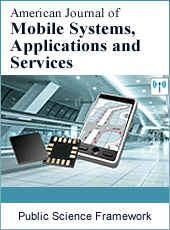American Journal of Mobile Systems, Applications and Services
Articles Information
American Journal of Mobile Systems, Applications and Services, Vol.1, No.1, Aug. 2015, Pub. Date: Jul. 23, 2015
Construction of Trusted Computing Platform Based on Android System
Pages: 54-58 Views: 4811 Downloads: 1175
[01]
Hui Zhang, College of Information Engineering, Taishan Medical University, Taian, China.
[02]
Defeng Sun, College of Information Engineering, Taishan Medical University, Taian, China.
[03]
Yanli Xiao, College of Information Engineering, Taishan Medical University, Taian, China.
[04]
Lei Peng, College of Information Engineering, Taishan Medical University, Taian, China.
With the widespread use of Android mobile phones, the problems of security of phone become increasingly prominent. The Java technology architecture for trusted computing is a trend to solve the above problems. Through the analysis of the current Java platform trusted computing architecture and the security of Android operating system, the trusted platform architecture based on Android and Java is proposed. The mobile trusted modules are implemented by combining the trusted chip and related software such as protocol and algorithm, trusted chip API, computing library API, and computing function library. In this architecture, by analyzing the feasibility of each module, the mobile platform to be verified is trusted.
Trusted Computing, Android, Mobile Terminal, Mobile Trusted Module
[01]
Bugiel S, Davi L, Dmitrienko A, et al. Poster: the quest for security against privilege escalation attacks on android[C]//Proceedings of the 18th ACM conference on Computer and communications security. ACM, 2011: 741-744.
[02]
Enck W, Ongtang M, Mcdaniel P. Mitigating Android software misuse before it happens[J]. 2008.
[03]
Barrera D, Kayacik H G, van Oorschot P C, et al. A methodology for empirical analysis of permission-based security models and its application to android[C]//Proceedings of the 17th ACM conference on Computer and communications security. ACM, 2010: 73-84.
[04]
Fuchs A P, Chaudhuri A, Foster J S. Scandroid: Automated security certification of android applications[J]. Manuscript, Univ. of Maryland, http://www. cs. umd. edu/avik/projects/scandroidascaa, 2009, 2(3).
[05]
Debbabi M, Saleh M, Talhi C, et al. Security Evaluation of J2ME CLDC Embedded Java Platform[J]. Journal of Object Technology, 2006, 5(2): 125-154.
[06]
Dietrich K. An integrated architecture for trusted computing for java enabled embedded devices[C]//Proceedings of the 2007 ACM workshop on Scalable trusted computing. ACM, 2007: 2-6.
[07]
Bichsel P, Camenisch J, Groß T, et al. Anonymous credentials on a standard java card[C]//Proceedings of the 16th ACM conference on Computer and communications security. ACM, 2009: 600-610.
[08]
Brickell E, Camenisch J, Chen L. Direct anonymous attestation[C]//Proceedings of the 11th ACM conference on Computer and communications security. ACM, 2004: 132-145.
[09]
Dietrich K. Anonymous credentials for java enabled platforms: a performance evaluation[M]//Trusted Systems. Springer Berlin Heidelberg, 2010: 88-103.
[10]
Wachsmann C, Chen L, Dietrich K, et al. Lightweight anonymous authentication with TLS and DAA for embedded mobile devices[M]//Information Security. Springer Berlin Heidelberg, 2011: 84-98.
[11]
Wering Liu, Jianwei Liu. Android OS trusted computing platform architecture[J]. Wuhan University: natural science edition, 2013, 59 (2): 159-164.

ISSN Print: 2471-7282
ISSN Online: 2471-7290
Current Issue:
Vol. 5, Issue 1, March Submit a Manuscript Join Editorial Board Join Reviewer Team
ISSN Online: 2471-7290
Current Issue:
Vol. 5, Issue 1, March Submit a Manuscript Join Editorial Board Join Reviewer Team
| About This Journal |
| All Issues |
| Open Access |
| Indexing |
| Payment Information |
| Author Guidelines |
| Review Process |
| Publication Ethics |
| Editorial Board |
| Peer Reviewers |


